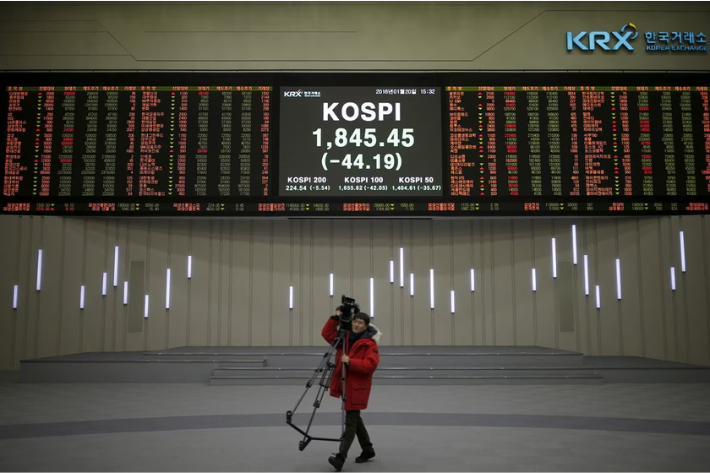South Korea is set to re-impose a ban on short-selling starting Monday, a restriction that is set to last at least until June 2024.
“The measure is aimed at fundamentally easing ‘the tilted playing field’ between institutional and retail investors,” Kim Joo-hyun, chairman of South Korea’s Financial Services Commission (FSC) told a news briefing on Sunday.
“Amid continued uncertainty in financial markets, major foreign investment banks have been engaged as a matter of practice in unfair trades … and we determined that it would be impossible to maintain fair trading discipline,” Kim said.
Also on AF: China Restricts Securities Lending in Short-Selling Clampdown
In March 2020, South Korea’s financial regulator imposed a six-month ban on stock short-selling in listed shares on the Kospi and Kosdaq, as a market meltdown triggered by the Covid-19 pandemic weighed on the economy.
That went on to become the world’s longest short-selling ban, being lifted more than year later — and only partially — in May 2021.
While short-selling has remained in place for most stocks, South Korea green-lit shorting for trades involving the shares of companies with large market capitalisation included in the KOSPI200 and KOSDAQ150 indices.
Referring to this latest ban, the FSC said it will review market activity in June to decide whether there is significant improvement for it to be lifted.
Concerns around naked short-selling
The securities regulator also said last week said it would establish a team of investigators to probe short-selling by foreign investment banks for illegal activity including so-called naked short-selling.
When short-selling, investors sell borrowed shares to buy them back at a lower price and pocket the difference.
Another variation of that – in which an investor short-sells shares without first borrowing them or determining they can be borrowed – is known as naked short-selling. The trading technique is permanently banned in South Korea.
South Korea’s Financial Supervisory Service in October said it would likely fine two Hong Kong-based investment banks it determined had engaged in naked short-selling transactions worth 40 billion won ($29.58 million) and 16 billion won respectively.
Earlier in the year, the regulator also fined five foreign firms including Credit Suisse for naked short-selling.
Officials and market watchers alike have cited uncertainty around short-selling regulation as among factors needing to be resolved for influential index provider MSCI to upgrade South Korea to developed-market status.
- Reuters, with additional editing by Vishakha Saxena
Also read:
Asia Economies Warned High Inflation to Persist Into Late 2024
Asia Central Banks’ $30bn Forex Fight to Fend Off Dollar
Economic Risks Mount for Asia as Israel Declares War on Hamas
Asia Investors Watch Nervously as Middle East War Intensifies
Rising US Yields Spur Major Outflow From Asian Bonds in Sept
China Hit by Months of Plunging Foreign Investment – FT
























